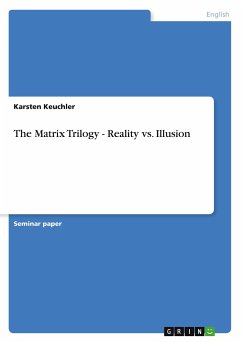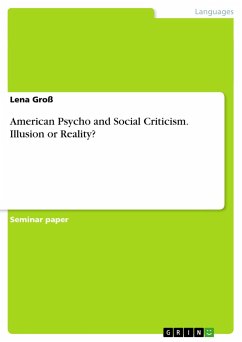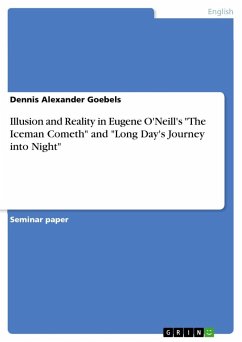Seminar paper from the year 2007 in the subject American Studies - Miscellaneous, grade: 1,0, University of Dortmund, course: Digital Cultures and Cyberspace, language: English, abstract: According to the Simulation Hypothesis, what we perceive as reality is actually just a simulation. However, this artificial reality cannot be distinguished from the actual reality so that all those caught in the simulation are not aware of it. Eventually, the Wachowski brothers picked up this idea in order to produce the Matrix trilogy, a cyberpunk story which may have led to more controversial discussions than any other movie in recent cinema history.The story is set in the near future and starts out with Neo, a computer hacker, being contacted by some underground rebels. Their leader Morpheus considers him to be some promised Christ-like savior, the "chosen one" to free the human race and reestablish peace between the machines and mankind. He introduces Neo to what he knows about reality. [...]But Neo did have a choice whether he really wanted to know the truth about the world he was living in. Morpheus offered him two options, namely a blue and a red pill: "You take the blue pill and the story ends. You wake up in your bed and believe whatever you want to believe," he explained to Neo. In allusion to Alice in Wonderland, he would otherwise "show [him] how deep the rabbit hole goes." Although Morpheus insists he cannot offer "anything but the truth," Neo's decision in favour of the red pill is clear rather soon. This scene right at the beginning of the trilogy is also when everybody in front of the screens starts to wonder what he or she would have opted for. Even in the further course of the movie, when it is known that people just are slaves to the machines and living in a simulation, this question remains, to some extent. What advantages does it have to stick to the system and, on the other hand, what is wrong with living in such a simulated reality as presented in the Matrix trilogy? It is the decision between reality and illusion. But what is real and what is unreal?








